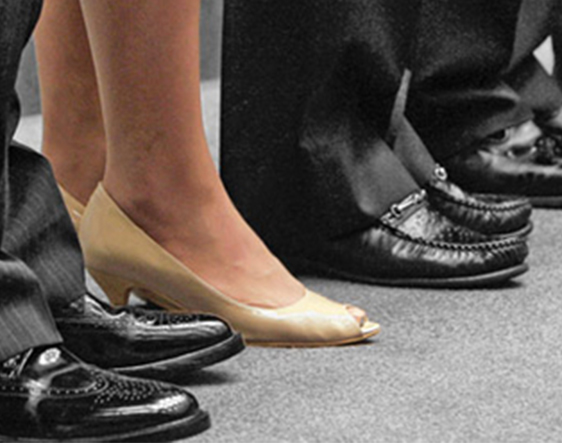New research by Thomas International, the people assessment specialists, shows that the emotional intelligence and personality traits of female and male leaders are the same, but they are perceived differently. Contributor Jayson Darby, Head of Psychology – Thomas International.
Despite the stereotypes, female leaders are no more empathetic than male leaders, and male leaders are no more assertive and composed than female leaders. For the in-depth study, Thomas assessed the personality traits and emotional intelligence of 137 director-level, female leaders in organisations with at least 100 employees. It then benchmarked them against a demographically, hierarchically and industry matched male senior leadership sample.
The study found that against every measure including approach to risk, competitiveness, conscientiousness, assertiveness, emotion management, relationships and optimism, there is no discernible difference between successful male and female leaders. Contrary to popular opinion, the women haven’t needed to be more sensitive to get to the top and the men are no more likely to be risk-takers or competitive than the women in the study.
Thomas’ team then examined how these traits are perceived by people – and found a key difference. On the road to the top, personality and emotional traits which are found in successful leaders, and which are perceived as good in men, are often interpreted as a fault in women. This will hold back the very people businesses are looking for. For example: losing your cool and showing strong emotions is seen as passion when it’s a man, but as hysteria when it’s a woman; Standing your ground and being direct is seen as assertive when it’s a man, bossy when it’s a woman. Also, women are expected to be more serious at work if they want to be seen as ‘leadership material’; being too happy is seen as ‘flighty’ and ‘not having what it takes’.
Jayson Darby, Head of Psychology at Thomas International, says: “Our study lends weight to the very issue highlighted by Serena Williams during the recent US Grand Slam – behaviour that’s seen as acceptable from a man, is judged differently when demonstrated by a woman. This is an experience that is sadly quite common for women at work”.
“Our research has shown that women are as likely as men to have the traits of a good business leader, but women face additional hurdles to their success; the very traits that are proven predictors of leadership potential are judged negatively when they are shown by women. There is an inherent bias in the way people describe female success, and it’s holding women back”.
Thomas’ research also shows that there are some career advantages that benefit men much more than women. Thomas has shown that for men, age and education predicted 25% of why a man was in a senior role. Whereas in women, these ‘career boosts’ don’t work so well; indeed age and education are 150% more likely to predict why a man is a senior leader compared to a woman. Instead women are judged much more on their personality – if this isn’t viewed as ‘right’ they will find it tough to get ahead.
Jayson Darby continues: “Women in business can’t seem to catch a break, even if they possess the traits that predict success they have to contend with stereotypes and biases that turn those advantages into negatives. We also observed evidence that the ‘old boys club’ is still an influencing factor, with women benefiting far less from age and education-related privilege. A man with an Oxbridge degree will be offered a huge advantage in their career efforts compared to a woman with an equivalent qualification, even if she has better leadership traits. The end result will be lots of average men getting ahead of more talented women.”
Jayson Darby concludes: “Our research is a wake-up call for companies. We’ve proven there’s simply no meaningful differences between the traits that make great male and female business leaders, yet the gender imbalance remains, and it is affecting gender diversity at the very top. Companies need to look at their talent management processes and the language they use to define success. This will help them evaluate whether there are any biases or stereotypes influencing their definitions of successful leadership traits, that may disadvantage women.
“If companies want to really solve the diversity problem in the boardroom, and have great women reach the top of their organisations, they need to start evaluating them impartially – that means using psychometric assessments – rather than allowing this ‘gender jaundice’ to prevail.”









